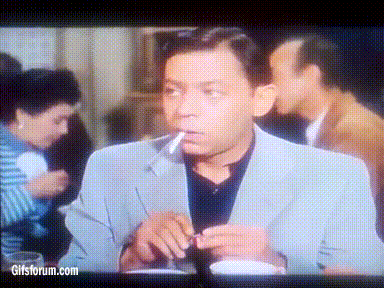You know, folks, it's rare that I see a movie with the kind of reviews this one got (see excerpts from Rotten Tomatoes, below). Apparently Johnny Depp has been on a real losing streak. I was puzzled over why he strapped a dead crow to his head to play Tonto in the recent weak update of The Lone Ranger. This one is even more puzzling. I'm not sure I want to know what it is about, but it looks like it's about 2 hours too long for these particular critics. Once Siskel and Ebert claimed they wanted to kill themselves rather than sit through one particularly abominable movie (I think it was called She's Out of Control). I am sure at least some of these critics wanted to take long (two-hour?) washroom breaks or just sprint for the exit, making up the review out of whole cloth, as I am sure they do anyway.
When I blathered on about making The Glass Character into a movie, an idea which was ridiculed and shot down so quickly I don't even know how it got back on its gasping, quivering feet, everybody said, "Oh, it should be Johnny Depp." Johnny Depp is now well over 50 years old, and while those Cherokee cheekbones have served him well, in the book Harold is barely 30. Johnny looks nothing like Harold, not even close. Zachary Quinto was my first pick, and he still might pull it off, and Jake Gyllenhaal was in second place, though his look is pretty far off (except for. . . those lips). But Johnny. He has yet another stroke against him now. It's sad, because he has turned in some interesting if over-quirky work over the years. I liked him on 21 Jump Street, myself, when he played a rogue cop. But Harold? No matter how cute his Keatonesque antics in Benny and Joon, he just won't make it - in particular, not after this.
Full Review… | January
23, 2015
ScreenRant
With art-heist caper Mortdecai, Johnny Depp tries his darnedest
to start a kooky Austin Powers-like franchise with a side of bumbling Insp.
Clouseau. But dash it all if it isn't a crashing bore, old bean.
Full Review… | January
23, 2015
Top Critic
[Mortdecai] fails on just about every level, so committed to its
ridiculous premise that it doesn't bother to step back and recognize what an
unholy mess it is.
Grantland
Top Critic
Stale, strained and sadly dismal considering all parties
involved, Mortdecai wants to be a globe-trotting roguish romp crossing the
globe in a bespoke suit, but it feels more like a brandy-soaked nap in
grandad's threadbare housecoat.
Full Review… | January
23, 2015
About.com
Depp's strenuously unfunny performance turns a frivolous caper
comedy into a grim death march to the closing credits.
Full Review… | January
23, 2015
Newsday
Top Critic
Mortdecai is content to stroll casually and unassuredly through
its paces, taking long, long intermissions for Depp to whimper and giggle.
Full Review… | January
23, 2015
CraveOnline
A sh-tshow from start to finish, a theoretically whimsical
comedy wherein the actors physically begin to shrink as it goes along, as if
they realized what they had gotten into just a beat too late to possibly
escape.
Full Review… | January
23, 2015
Deadspin
Go if you're a raging Anglophile with an afternoon to burn or
you just love Depp, even at his hammiest. Otherwise, don't point this thing at
you.
Full Review… | January 23, 2015
Entertainment
Weekly
Top Critic
It's heavy on doses of double entendres, slapstick and zaniness,
but completely bereft of any laughs or true entertainment value. (Full Content
Review -- Sex, Profanity, Violence, etc. -- for Parents also available)
Full Review… | January 23, 2015
Screen It!
When it gels, it's genial. When it doesn't, it drags. And drags.
When it gels, it's genial. When it doesn't, it drags. And drags.
If you have an allergy to pure goofballery, this is not the
movie for you. Spend your Depp bucks elsewhere.
Full Review… | January 23, 2015
Blu-ray.com
What looked funny in small, trailer-sized doses turns into an
interminable death march when applied to an almost two-hour run time.
Full Review… | January 23, 2015
CinemaBlend.com
There was no laughter, just grim resolve on the part of those of
us professionally obligated to stick it out through the bitter end.
Full Review… | January
23, 2015
Beliefnet
[An] absolutely bewildering waste of time, talent, energy and
money.
POST-BLOG POST-MORT(DECAI)
Could not resist adding this morbid little tidbit. Much has been made of Depp's box office decline in recent years. It strikes me that he isn't being careful enough what he takes on - just has to work all the time, for reasons of his own. Maybe he's broke. It amazes me how these stars go through money.
Could not resist adding this morbid little tidbit. Much has been made of Depp's box office decline in recent years. It strikes me that he isn't being careful enough what he takes on - just has to work all the time, for reasons of his own. Maybe he's broke. It amazes me how these stars go through money.













.jpg)
.jpg)




















.jpg)


.jpg)








